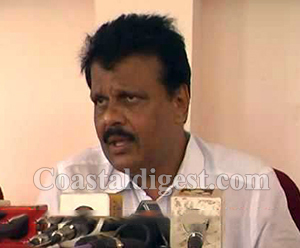 Kasaragod, My 19: The sitting MLA NA Nellikkunnu of the Indian Union Muslim League has managed to win the prestigious Kasaragod assembly constituency for the second consecutive term.
Kasaragod, My 19: The sitting MLA NA Nellikkunnu of the Indian Union Muslim League has managed to win the prestigious Kasaragod assembly constituency for the second consecutive term.
In spite of rigours campaign by BJP leaders including Prime Minister Narendra Modi and party chief Amit Shah, their candidate Raveesha Thantri was defeated by the sitting MLA.
In 2011 Mr Nellikkunnu had defeated BJP's Jayalakshmi N Bhat with a convincing 9,738 votes margin in the 2011 polls. This time the BJP had surprised all by choosing Raveesha, the state vice-president of Hindu Aikya Vedi as its candidate.
Raveesha is the thantri (chief priest) for 63 temples in Dakshina Kannada and Kasaragod, and is a patron of district temple protection committee. The RSS leadership had hoped that he would have good stead in the elections.
The Kasaragod Assembly segment has been witnessing one-to-one fight between the IUML and the BJP with the former winning the 10 elections in a row since 1977.
Also Read :
After defeat BJP workers turn violent across Kasaragod; CPI MLA attacked
No major surprise in Kasaragod district: Muslim League 2, CPI(M) 2, CPI 1
CPI(M) worker killed in a bomb attack in Kannur amid LDF victory celebrations
Thanks for all the love... It's just a beginning, says Sreesanth after defeat
LDF regains power in Kerala, BJP opens account; CPI(M) focuses on finalising CM
BJP scripts history in Kerala as 86-year-old Rajagopal wins Nemom Seat




Comments
Congrats NA, its proved again Kasargod is not the place for hate mongers, Po Mone Tantri to Somalia with your PM
Alhamdulillah
Manjeshwar aur Kasaragod me UDF ne jeet hasil kardi hai
UDF Zindabaad
Alhamdulillah
Manjeshwar aur Kasaragod me UDF ne jeet hasil kardi hai
UDF Zindabaad
Fake vote lifted his victory.
Add new comment